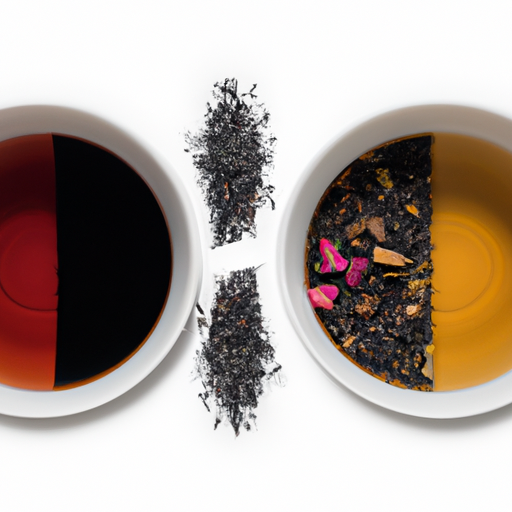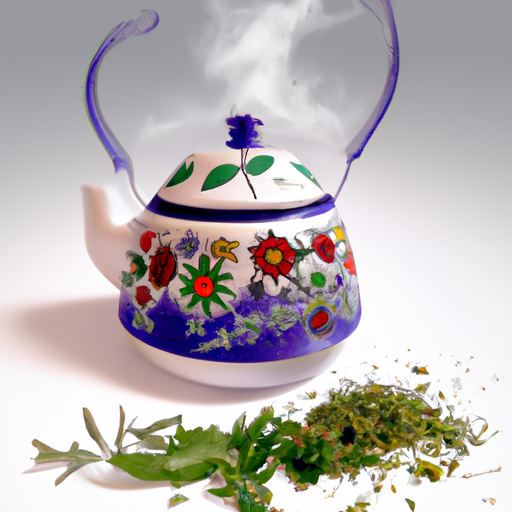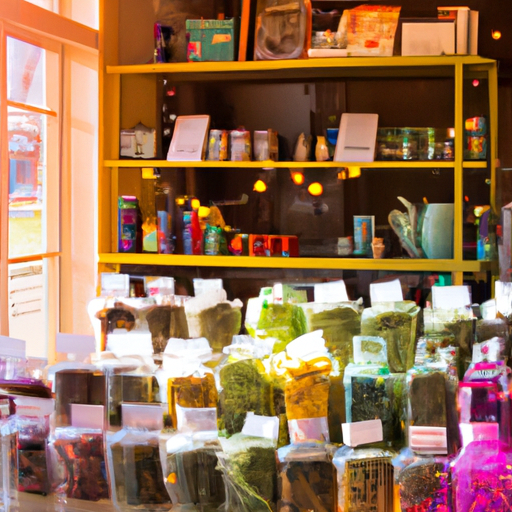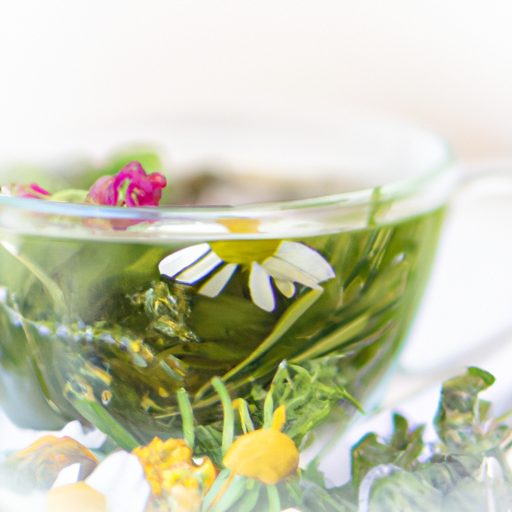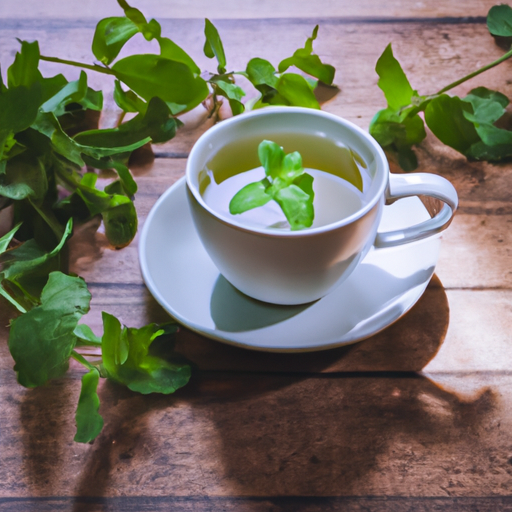Ever thought about what makes herbal tea different from black tea? Both are commonly enjoyed for their soothing and refreshing qualities, but they have distinct differences.
In this article, I will explore the differences between herbal tea and black tea, shedding light on their origins, processing methods, caffeine content, flavor profiles, health benefits, brewing methods, popular varieties, and serving suggestions.
By understanding these distinctions, you can make an informed decision about which tea is best suited to your preferences and needs. Whether you’re a tea connoisseur or simply enjoy a hot cup of tea to relax, this article will provide you with valuable insights into the unique characteristics of herbal tea and black tea.
So, let’s dive in and uncover the secrets behind these delightful and aromatic beverages!
Key Takeaways
- Herbal tea is made from various plant materials, while black tea is derived from the Camellia sinensis plant.
- Herbal tea is naturally caffeine-free, while black tea contains caffeine.
- Herbal teas have a wide range of flavors, while black tea has a robust and bold flavor.
- Herbal teas like chamomile and peppermint have high levels of antioxidants, while black tea contains polyphenols linked to improved heart health.
Origins and Processing Methods
So, you’re probably wondering how herbal tea and black tea are different when it comes to where they come from and how they’re made.
Herbal tea, also known as tisane, is made from various plant materials such as leaves, flowers, and fruits. It has a long history of cultural significance, being used for medicinal and therapeutic purposes in different cultures around the world.
On the other hand, black tea is derived from the leaves of the Camellia sinensis plant, which undergoes a process of withering, rolling, oxidation, and drying. This process gives black tea its distinct flavor and color.
It is important to note that black tea production has a higher environmental impact compared to herbal tea due to its intensive cultivation and processing methods.
Now, let’s move on to the next section about caffeine content.
Caffeine Content
If you’re looking for a pick-me-up without the jitters, go for herbal tea instead of black tea. Herbal teas are naturally caffeine-free, making them a great choice for those who are sensitive to caffeine or want to avoid it altogether. The absence of caffeine in herbal teas can have positive effects on sleep quality, as caffeine can interfere with sleep patterns and cause restlessness.
Additionally, caffeine sensitivity varies among individuals, so opting for herbal teas can help avoid any potential negative effects that caffeine may have.
Now, let’s delve into the next section and explore the intriguing flavor profiles of both herbal and black teas.
Flavor Profiles
Exploring the world of tea is like embarking on a flavorful journey, where each sip reveals a unique and captivating taste experience. When it comes to flavor profiles, herbal tea and black tea offer distinct preferences for tea enthusiasts.
Herbal teas, also known as tisanes, are made from a variety of plants and flowers, resulting in a wide range of flavors. From the refreshing taste of peppermint to the soothing notes of chamomile, herbal teas cater to diverse taste preferences.
On the other hand, black tea, derived from the Camellia sinensis plant, boasts a robust and bold flavor. Its rich and malty taste, sometimes accompanied by hints of fruit or floral undertones, provides a delightful sensory experience.
The aromas and scents of herbal teas and black teas further enhance the tasting experience, with herbal teas often offering fragrant and calming notes, while black teas exude a comforting and invigorating aroma.
As we delve into the health benefits of tea, it’s fascinating to discover how these flavors contribute to our overall well-being.
Health Benefits
Embark on a flavorful journey as you discover how the health benefits of tea can enhance your overall well-being. When comparing antioxidant levels, both herbal tea and black tea offer their own unique advantages.
Herbal teas, such as chamomile or peppermint, are known for their high levels of antioxidants, which can help reduce inflammation and boost the immune system.
On the other hand, black tea, derived from the Camellia sinensis plant, contains polyphenols that have been linked to improved heart health and a lower risk of chronic diseases. However, it’s important to note that black tea also contains caffeine, which may cause potential side effects and risks, such as increased heart rate or anxiety in sensitive individuals.
Transitioning into the subsequent section about brewing methods, let’s explore the different ways to prepare these teas and maximize their benefits.
Brewing Methods
To make the most of your tea experience, let’s delve into various brewing methods that can enhance the flavor and maximize the health benefits of your favorite brews. Did you know that adjusting the water temperature and steeping time can significantly impact the taste and potency of your tea? By using different infusion techniques and varying the steeping times, you can bring out the unique flavors and aromas of your tea. Here is a table showcasing some popular brewing methods for both herbal tea and black tea:
| Tea Type | Water Temperature | Steeping Time |
|---|---|---|
| Herbal Tea | 95°C (203°F) | 5-7 minutes |
| Black Tea | 90-95°C (194-203°F) | 3-5 minutes |
These guidelines can serve as a starting point, but feel free to experiment and adjust according to your personal preference. Now, let’s move on to explore the popular varieties of tea.
Popular Varieties
Now, let’s delve into the realm of popular tea varieties and discover their distinct characteristics.
When it comes to herbal tea, there are numerous types available, each offering its own unique flavors and health benefits. From soothing chamomile to invigorating peppermint, herbal teas come in a variety of flavors and aromas to suit different preferences.
One key difference between herbal tea and black tea is the way they’re prepared. While black tea is typically available in both loose leaf and bagged forms, herbal teas are often found in loose leaf form, allowing for a more customizable brewing experience. Loose leaf herbal teas tend to have a fresher taste and aroma compared to their bagged counterparts.
Now, let’s move on to explore the best ways to serve and enjoy these delightful teas.
Serving Suggestions
For a truly delightful tea experience, try serving herbal varieties in unique and charming teacups, adding a touch of elegance to your daily ritual. Imagine sipping on a warm and fragrant cup of chamomile tea, its delicate flavors enhancing the beauty of your vintage teacup.
When it comes to presentation styles, herbal teas offer a wide range of options. You can showcase their vibrant colors and textures by serving them in clear glass teacups or teapots. This allows your guests to appreciate the visual appeal of the herbs and flowers used in the blends. For a more traditional approach, consider using porcelain teacups with intricate patterns that reflect the rich history of tea rituals.
To elevate your tea experience, consider incorporating a tea ceremony into your serving. This ancient practice involves carefully preparing and serving tea, creating a sense of mindfulness and tranquility. You can follow a specific tea ceremony style, such as the Japanese tea ceremony, or create your own personalized ritual.
Incorporating presentation styles and tea rituals into your serving can turn a simple cup of tea into a memorable experience. So next time you brew a cup of herbal tea, take a moment to appreciate the beauty and tranquility it can bring to your everyday life.
Frequently Asked Questions
Are there any potential side effects or risks associated with drinking herbal tea or black tea?
There are potential side effects and health risks associated with drinking herbal tea or black tea. It’s important to be aware of individual sensitivities and consult a healthcare professional if you have any concerns.
Can herbal tea or black tea be consumed during pregnancy or while breastfeeding?
During pregnancy, it is generally safe to consume herbal tea in moderation, but black tea should be limited due to its caffeine content. When breastfeeding, both herbal tea and black tea can be enjoyed in moderation without any major concerns.
Are there any specific herbal teas or black teas that are known for their calming or sleep-promoting properties?
There are specific herbal teas, like chamomile and lavender, known for their calming properties. On the other hand, black teas like Darjeeling and Earl Grey can be sleep-promoting due to their caffeine content.
Can herbal tea or black tea be used as a natural remedy for any specific health conditions?
Herbal tea and black tea can be used as natural remedies for various health conditions. Herbal tea is known for its calming properties, while black tea can help with digestion and boost heart health.
How do herbal teas and black teas compare in terms of their antioxidant content?
When comparing the antioxidant content of herbal tea and black tea, it is important to consider their taste profiles and caffeine content. Herbal teas generally have a milder taste and lower caffeine levels compared to black teas.
Conclusion
In conclusion, understanding the difference between herbal tea and black tea is crucial for tea enthusiasts. While both have their merits, they differ in terms of origins, processing methods, caffeine content, flavor profiles, and health benefits.
Herbal teas, such as chamomile or peppermint, are caffeine-free and offer a variety of natural remedies.
On the other hand, black teas, like Earl Grey or Assam, have a bold flavor and moderate caffeine kick.
So, whether you seek a soothing herbal infusion or a robust black tea, make sure to choose wisely and savor the unique experience each one offers.

